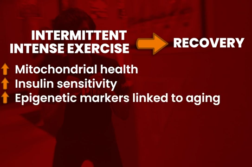HOUSTON, Tex. (Ivanhoe Newswire) – Roughly 17,000 thyroid surgeries are performed each year; many doctors remove the gland through the neck, leaving a highly visible scar. Now, a procedure called transoral endocrine surgery pulls the thyroid gland out through a patient’s lower lip leaving no scar; a shorter healing time, and a much healthier self-image.
Tracy Faustermann is an energetic young mom, frequently on the road for her job.
But recently, Faustermann’s health took a wrong turn: first achy bones and severe heartburn, then high blood pressure. And then, a very strange finding.
Faustermann told Ivanhoe, “We ran a bunch of tests. CAT scan and all that fun stuff. Nothing came up, except a high calcium reading and I was like, alright, what’s that about?
Faustermann’s parathyroid gland was the culprit.
“Parathyroids are little glands that are, typically, about the size of a couple of grains of rice,” said Raymon Grogan, Chief of Endocrine Surgery at Baylor’s St. Luke’s Medical Center and associate professor of surgery at Baylor College of Medicine in Houston.
One of Faustermann’s glands was in overdrive, robbing her body of precious calcium.
“When you have an overabundance of parathyroid hormone, the body will start leeching calcium from the bones,” Faustermann explained.
So, Dr. Grogan performed something called transoral endocrine surgery on Faustermann. Three incisions are made in the lower lip. One on the midline and two at each corner of the mouth.”
“We tunnel down between the skin and the jawbone and then use laparoscopic instruments to go down and remove either the thyroid or the parathyroid that way,” Dr. Grogan said.
The result? The gland comes out with no telltale cross neck scar.
“Absolutely it’s worth it, 100 percent,” Faustermann said.
Healthy and happy, with virtually all signs of her health challenges behind her.
So, who is eligible for this transoral endocrine surgery? Those with thyroid cancers less than two cm; those with Graves’ disease or primary hyperparathyroidism, which is what Faustermann had. A recent study of 1,000 surgical patients showed that 558 of them were eligible for this surgery.
Contributors to this news report include: Donna Parker, Producer; Bruce Maniscalo, Videographer; Matt Goldschmidt, Editor.
To receive a free weekly e-mail on Medical Breakthroughs from Ivanhoe, sign up at: http://www.ivanhoe.com/ftk
MEDICAL BREAKTHROUGHS
RESEARCH SUMMARY
TOPIC: SCARLESS THYROID SURGERY THROUGH THE LIP
REPORT: MB #4712
BACKGROUND: Hyperthyroidism is the overproduction of tetraiodothyronine, T4, and triiodothyronine, T3, which are primary hormones that control how your cells use energy. The condition is more common in women, people over 60 and those with other thyroid problems. It can be caused by Graves’ disease, thyroid nodules, thyroiditis, or consuming too much iodine. Symptoms include mood swings, increased appetite, trouble sleeping, rapid and irregular heartbeat, enlargement of the thyroid or goiter and even heat intolerance. The condition is also linked to atrial fibrillation and congestive heart failure or strokes.
(Source: https://www.healthline.com/health/hyperthyroidism#symptoms)
DIAGNOSING: To test for the condition, doctors may try to detect a tremor in the fingers when extended, overactive reflexes, moist or warm skin or even eye changes. They will also use a blood test which looks at thyroxine and thyroid stimulating hormone. High levels of thyroxine or low to no levels of TSH are indicators. The blood test could give false results if you are taking the B vitamin supplement, biotin. If hyperthyroidism is detected doctors may ask for a thyroid scan or ultrasound or even a radioiodine uptake test, which takes a small oral dose of radioactive iodine to see how much the thyroid has absorbed. The more it absorbs the more it shows that your thyroid gland is producing too much thyroxine. Treatments include radioactive iodine which can help shrink the gland, anti-thyroid medications and beta blockers or surgery.
(Source: https://www.mayoclinic.org/diseases-conditions/hyperthyroidism/diagnosis-treatment/drc-20373665)
NEW PROCEDURE: Most patients are given the option of a thyroidectomy, the removal of all or part of the thyroid gland. There are many reasons as to why this surgery might be performed besides hyperthyroidism, such as cancer, goiter, or suspicious or indeterminate thyroid nodules. There are risks to the surgery such as bleeding, infection, weak voice due to nerve damage or low parathyroid hormone levels. It also leaves a visible scar. Surgeons at Mount Sinai Beth Israel Hospital performed the first scarless thyroid surgery in 2017. One very rare risk is damage to the nerve which is used by dentists to numb the front of the teeth. This procedure is a step in the right direction since doctors have been looking for a new method of removing the thyroid since the 1900s.
(Source: https://www.mayoclinic.org/tests-procedures/thyroidectomy/about/pac-20385195?page=0&citems=10 https://endocrinenews.endocrine.org/new-thyroid-surgery-technique-leaves-no-visible-scar-experts-warn-caution/)
FOR MORE INFORMATION ON THIS REPORT, PLEASE CONTACT:
Raymon Grogan
713-798-2788
rgrogan@bcm.edu
If this story or any other Ivanhoe story has impacted your life or prompted you or someone you know to seek or change treatments, please let us know by contacting Marjorie Bekaert Thomas at mthomas@ivanhoe.com




